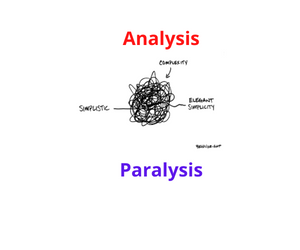A conclusion. The missing ingredient in the use of the Blockchain will be revealed, or at least my view. That is the goal for this week’s post. For sure, I do not have a fully formed solution. that said, I think I have enough of a view to have an opinion. Any and all feedback is really appreciated; a “like” is nice, a comment would be welcome and a “share” truly great. As a certain Mr. Billy Joel sang: “I may not have all the answers yet, but I am getting closer”, well perhaps “… with a little help from my friends.”
Money. Real money. In previous posts, I have put the case that Bitcoin is not the answer. Any crypto currency that is totally anonymous is not going to work. There should be no doubt that the regulators are going to keep that part of the “new equation” firmly in check. A recent CFTC ruling makes it very clear that regulators are keeping Bitcoin on a very narrow leash.
So, real money it must be, this magic ingredient. Describing it is actually simple; we can learn from the past and we have a model which already works today. In an earlier post , I described the way the FS business already converts ordinary shares to ADR’s or GDR’s. The essential ingredient in that evergreen piece of industry infrastructure is a transfer agent; an institution that arranges a bridge between the “old world” of money balances in a payments system to balances in a new Blockchain platform of some sort.
So, who might perform this role of “transfer agent”? A commercial bank, like Citibank, BNY Mellon, JP Morgan or Deutsche Bank, all of whom might do this today. Perhaps even all of them. Should competition be allowed to simply unfold, with the regulators setting some boundaries by simply setting some rules, i.e defining the “no’s”? My view is a decided no, no and no.
No, the “agent” should not be a commercial operator. The ADR transfer does not always work; at least for insiders, it is known and undisputed that there are not infrequent times when the transfer is not seemless, which is the result of errors in the transfer and record keeping process.
No, we would not need multiple operators. Those of a certain age, with greying hair or little left of it, will remember how awkward Eurobond settlement was back in the days of the “Euroclear / Cedel bridge”. Younger readers may not know Cedel was a predecessor of today’s Clearstream; for more insight consult somebody over 50 who you know worked at Salomon Brothers in the ’80’s. For whatever efficiency there might be today, there were years of inefficiency and pain for Operations professionals.
No, we should not let competition do its thing. In fact, the banks would be between a rock and a hard place. If they get together, there is huge potential for their actions to be seen as an anti-trust issue, yet if they don’t we could end up,with multiple parallel operations.
We also do not want to solve for this country by country. Imagine that the Brits were first and managed to harness all the FinTech smarts exuding from and around Silicon Roundabout and came up with a solution for GBP, Sterling. then the Germans use all that Vorpsrung Durch Technik and are the first with a solution for Euro, followed naturellement by the French with a vive la difference alternative for the Euro. Like crime in a multi-story car park, this would be wrong on so many levels.
First, even if each platform were good and did what it said on the tin, the banks would be forced to manage each of these platforms. In banks, entropy is the enemy. Ask any senior IT manager; the more platforms that have to be managed, the more people are needed and the higher the overhead.
Second, multiple solutions for the same currency is the same old story that we FS industry veterans have suffered with the Cedel/Euroclear issue. No more of that, please.
Third, we would be missing a whole big piece of the picture. Being able to connect the promise of Blockchain to GBP or to USD is individually good, there is a huge amount more to be gained if the “Global Blockchain Platform” could connect GBP to USD and USD to EUR, and USD to RUB, the Ruble. Today, we have CLS Bank, which is outstanding in its space.
CLS Bank settles some 65% of the value of the all FX activity in CLS eligible pairs CLS turns over some USD 2.5 trillion per day out of FX volume of some USD 4 trillion of Gloabl FX activity. That is a big gap and ignores outright payments. Settlement limits are still a problem and from recent experience it is very clear that the cost of liquidity which driven by various Basel regulations will tend to restrict intraday lines and increase the cost of payments.
Lessons Learned: It’s money that matters, not just in the USA as the song by Randy Newman would have it, but in financial services innovation. The good news, as I see it, is that what we need is innovation and not invention.
The magic ingredient is money that can be connected to a multi-currency Blockchain platform. One, just one. Money, both its creation and supervision, is the clear prerogative of Central Banks.
In the coming weeks, I will explain the benefits of this nirvana-like proposal and suggest a path toward it. Not a voyage of discovery or invention, the path I will suggest is one of innovation with some learning from history.
Understanding Bitcoin and Blockchain
My own epiphany in matters Bitcoin and distributed ledger technology is the result of three independent sources: I am indebted to Emmanuel Mogenet at Google for his inspiring gift of a Bitcoin, to Richard Brown at R3 for so readily sharing views and educating the latecomer and finally to Silicon Valley legend and LinkedIn CEO, Reid Hoffman for his seminal article in the May 2015 edition of Wired UK: “Reid Hoffman: Why the Blockchain matters.”
Previous Posts
Are available on the 3C Advisory website, click here.
Publications
The Bankers’ Plumber’s Handbook
How to do Operations in an Investment Bank, or Not! Includes all the Blog Posts, with the benefit of context and detailed explanations of the issues. True stories about where things go wrong in the world of banking. Available in hard copy only.
Cash & Liquidity Management
An up to date view of the latest issues and how BCBS guidance that comes into force from Jan 1 2015 will affect this area of banking. Kindle and hard copy.
Hard Copy via Create Space: Click here
Amazon UK: Click here
Amazon US: Click Here
Thanks for your support and thanks to the numerous contributors.
Share on:



